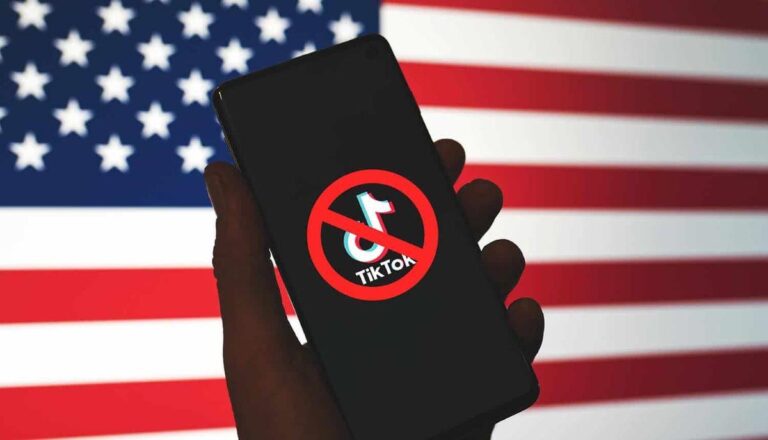TikTok is poised to face a nationwide ban in the United States after the company’s latest legal effort to overturn a newly enacted law was unsuccessful. The legislation, aimed at curbing national security risks associated with the Chinese-owned social media platform, has now cleared a critical judicial hurdle. This progress marks a meaningful escalation in the ongoing battle between U.S. regulators and TikTok, which has rapidly become one of the country’s most popular apps despite growing scrutiny over data privacy and foreign influence concerns.
TikTok Faces Legal Defeat as U.S. Upholds National Security Concerns
In a significant ruling, a U.S. appellate court has upheld the government’s authority to enforce restrictions on TikTok, citing national security risks associated with the Chinese-owned app. This decision marks a major legal setback for TikTok, which had challenged the ban aimed at mitigating concerns about sensitive user data perhaps being accessed by foreign entities. The court emphasized that safeguarding American users’ data and protecting the country’s information infrastructure are paramount, reinforcing the government’s position that the platform poses a tangible threat.
The ruling outlines several key factors that contributed to the court’s decision:
- Data Privacy Vulnerabilities: Concerns over how TikTok handles data collected from American users.
- Potential Foreign Influence: Risks of Chinese government access to TikTok’s data through its parent company, ByteDance.
- Broader National Security Context: The decision reflects heightened vigilance over technology linked to adversarial nations.
| Aspect | Government Position | TikTok’s Argument |
|---|---|---|
| Data Access | High risk of misuse by foreign actors | Robust data security measures in place |
| Transparency | Lack of sufficient oversight | Commitment to transparency and audits |
| User Impact | National security supersedes convenience | Millions of users’ freedom of expression |
Impact on Users and Content Creators Amid Growing Restrictions
The ban on TikTok will significantly disrupt both users and content creators who have built extensive communities and careers on the platform. For millions of users in the U.S.,the ban means losing access to a diverse array of short-form videos that offer entertainment,education,and social connection. Many rely on TikTok for daily news updates, cultural trends, and viral challenges that are now at risk of disappearing from their digital lives. Content creators, in particular, face an uncertain future, as the platform has become a critical launchpad for influencers and small businesses seeking visibility and revenue generation.
Key Implications for Stakeholders:
- Creators: Loss of monetization channels and audience reach, forcing a scramble towards choice platforms.
- Users: Decreased content diversity and diminished social engagement opportunities.
- Brands & Advertisers: Reconsideration of marketing strategies tailored specifically for TikTok’s unique demographic.
| Stakeholder | Impact | Potential Response |
|---|---|---|
| Content Creators | Loss of income and audience | Shift to Instagram Reels, YouTube Shorts |
| Users | Disruption in content access | Explore emerging social apps |
| Advertisers | Reduced ad reach | Reallocate budget to other platforms |
Government Measures Targeting Data Privacy and Foreign Influence
In response to mounting concerns over national security and data privacy, the U.S. government has enacted stringent regulations specifically targeting foreign-owned digital platforms. This new legal framework demands that companies like TikTok adhere to rigorous data handling protocols, including local data storage and transparent reporting on algorithmic operations. These measures aim to curtail unauthorized data transfers and reduce exposure to foreign influence campaigns that could undermine public trust and democratic processes.
Among the pivotal provisions are:
- Mandatory third-party audits of data security practices at regular intervals.
- Restrictions on cross-border data access to ensure sensitive information remains within U.S. jurisdictions.
- Enhanced transparency requirements obliging social media platforms to disclose content moderation policies.
| Measure | Purpose |
|---|---|
| Data Localization | Prevent foreign data access |
| Algorithm Audits | Detect content manipulation |
| Transparency Reports | Public scrutiny of moderation |
Strategies for TikTok and Stakeholders to Navigate Compliance Challenges
In the face of mounting legal obstacles, TikTok and its stakeholders must adopt multi-faceted strategies to mitigate compliance risks and sustain operations in the U.S. market. Prioritizing transparency is critical; this includes regular disclosures about data handling practices and third-party collaborations. Strengthening internal governance through dedicated compliance teams ensures that policies are consistently updated in line with evolving regulations. Moreover, engaging in proactive dialog with regulators can facilitate a clearer understanding of legislative expectations, thereby reducing uncertainties related to future policymaking.
To navigate the complex regulatory landscape effectively, stakeholders should consider the following approaches:
- Enhanced Data Localization: Implementing robust data storage solutions within U.S. borders to address security concerns.
- Third-Party Audits: Inviting autonomous audits to verify compliance integrity and reinforce public trust.
- Policy Advocacy: Collaborating with industry groups to influence balanced legislation that supports innovation while ensuring privacy protection.
- User Education: Launching campaigns to raise awareness on data rights and platform usage policies.
| Compliance Challenge | Strategic Response |
|---|---|
| Data Privacy Concerns | Local servers and encryption |
| Governmental Scrutiny | Regular regulatory engagement |
| Legal Restrictions | Collaborative policy advocacy |
| User Trust Deficit | Transparent interaction strategies |
Wrapping Up
As TikTok faces an imminent ban in the United States following its unsuccessful legal challenge to the new law, the controversy underscores the ongoing tensions between technology companies and national security concerns. The decision marks a significant moment in the evolving landscape of digital regulation and international relations, with both industry and lawmakers closely watching the implications for data privacy and cross-border operations. As the ban takes effect, TikTok’s future in the U.S. remains uncertain, raising broader questions about the balance between innovation and security in an increasingly connected world.




